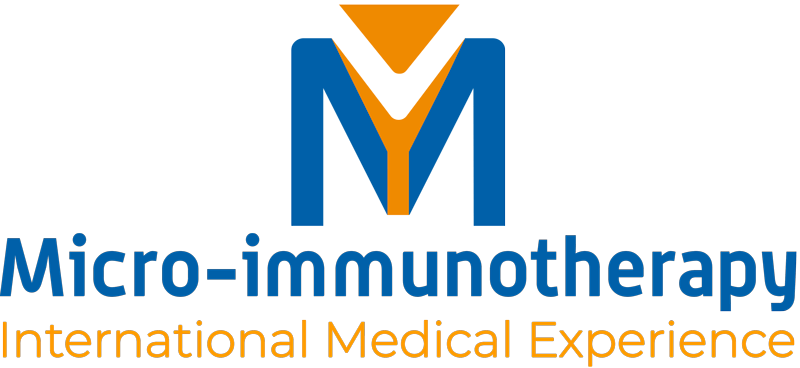Micro-immunotherapy & oncology

Cancer is an umbrella term used to describe various diseases that share common characteristics, such as the uncontrolled growth of cells that have mutated many times and could not be repaired or eliminated, due to defective control processes. These cells are thus able to enter healthy tissue and spread via blood vessels or the lymphatic system, in order to form secondary growths (metastases). Tumours can manipulate immune cells within their micro-environment to their own advantage and thus ensure conditions favouring tumour growth.3,4
Chronic and/or latent inflammation responses can also contribute to the occurrence and progression of tumours1-3. In this way, chronic inflammations accompanying particular chronic infections, autoimmune diseases and/or due to toxic substances can increase the risk of cancer occurring.
For oncological processes, complementary treatment with micro-immunotherapy aims to activate anti-tumorous immune defences and counteract mechanisms related to tumour progression.
- Colotta F et al. Cancer-related inflammation, the seventh hallmark of cancer: links to genetic instability. Carcinogenesis. 2009 Jul;30(7):1073-81.
- Wang M, Zhao J, Zhang L, et al. Role of tumor microenvironment in tumorigenesis. J Cancer. 2017;8(5):761-773. Published 2017 Feb 25. doi:10.7150/jca.17648
- Sica. A. Role of tumour-associated macrophages in cancer-related inflammation. Exp Oncol. 2010 Sep;32(3):153-8.
- Balkwill F, Charles KA,Mantovani A. Smoldering and polarized inflammation in the initiation and promotion of malignant disease.Cancer Cell. 2005 Mar;7(3):211-7.
Discover more about Oncology and micro-immunotherapy


